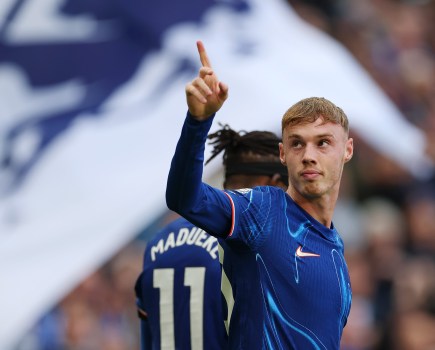 The 21st of May, the last day of the 2011 La Liga season, saw Real Zaragoza of Aragón narrowly avoid relegation from Spain’s top flight by defeating a disinterested Levante side by two goals to one.
The 21st of May, the last day of the 2011 La Liga season, saw Real Zaragoza of Aragón narrowly avoid relegation from Spain’s top flight by defeating a disinterested Levante side by two goals to one.
Gabi, the Zaragoza captain, inspired his side with a great performance, scoring twice, first with a sublime free kick and then driving an unstoppable shot into the top corner of Munúa’s goal. That night, Levante’s ground became a home away from home, with a reported 12,000 Zaragoza fans making the trip to see their team survive.
Just over 16 years ago, on the 10th of May 1995, at the final of the Cup Winner’s Cup in Paris, the fans had a more joyous reason to cheer. Arsenal provided the opposition on an unforgettable night in the Parc des Princes, which saw Zaragoza take the lead through Juan Esnáider, only for John Hartson to equalise less than ten minutes later.
The game became a stalemate through to extra time, and by the 119th minute, both sides were preparing themselves for penalties. At that point, a headed clearance bounced to Nayim near the half way line, who chested it down, and hit the ball hard with his right foot into the Paris night sky from forty yards out. The crowd watched in disbelief as the arc of the ball brought it down beyond David Seaman’s despairing backwards dive, and into the net.
The team that lifted the Recopa on that night in the French capital became known as los héroes de Paris, with players such as Gus Poyet gaining immortality among the club’s following. Skip forward to July 2011, and bankruptcy proceedings were started against the club, who now have a debt of nearly 100 million euro. So how did Real Zaragoza end up in this situation?
The first seeds of financial ruin were sewn in 2005, ironically in a season where Zaragoza performed well, going on a cup run which brought them to the final of the Copa del Rey, beating Real Madrid 6-1 en route, only losing to Espanyol in the final.
The beginning of the 2006/07 season saw the return of Víctor Fernández, the manager who brought European glory to Aragón eleven years earlier. Under his stewardship, Zaragoza ended that season in sixth place. As is often the case, such relative success began to breed the desire to push up the table in 2007/08, and in the spirit of more affluent times, they began to spend money they didn’t have, signing players to add to the likes of the Argentine Milito brothers, Diego and Gabi, who were already at the club.
The renewed quest for European glory was short-lived however, as Zaragoza were embarrassingly knocked out in their first UEFA Cup qualification game against Aris Thessaloniki of Greece. Worse was to follow, with poor results dragging the club down the table, and managers coming and going in a revolving door system.
Víctor Fernández, a club legend, was let go by Christmas. Ander Garitano took over for one game (a loss) and resigned. Javier Irureta, former title winning coach with Deportivo la Coruña, took over and also resigned in less than a month, citing the fact he had never lost 4 games in a row in his managerial career, and there was nothing he could do for Zaragoza. Eventually Manuel José Villanovo took charge in an ultimately unsuccessful bid to save the side, who were relegated to La Segunda at the end of the season.
The team which eventually went down featured a host of names that, to use a tired cliché, appeared too big to go down. Carlos Diogo, signed from Real Madrid; Andrés D’Alessandro, who was suspended for ill discipline; Albert Celades, one of the few players to have played for both Madrid and Barcelona; Sergio García, who made the Spain squad for Euro 2008 despite Zaragoza’s relegation; Matuzalem; César Sánchez; Pablo Aimar and Roberto Ayala all featured in a star studded season.
The club’s resources had been stretched to accommodate such signings when los maños seemed destined for Europe, culminating in the current financial problems which now confront a club who look set to declare only sixteen players for pre-season duty.
Financial mismanagement which verged on the negligent has brought the club to the brink, and the signing of Roberto Ayala in 2007 iillustrates how things went wrong. Not offered a new contract at Valencia, Ayala announced he was to join Villareal at the end of the 2006/07 season. Without ever having played for El Submarino Amarillo, Zaragoza signed him and paid Villareal the full buy out clause of €6 million.
Things didn’t go much better with the signing of Matuzalém, who tore up his contract with Shaktar Donetsk and moved to Spain in 2007. The case wasn’t resolved until 2009, after the Court of Arbitration for Sport got involved, and Matuzalém had already left the club. Zaragoza were originally ordered to pay nearly €7 million, a figure which rose to €13 million for breach of contract with Shaktar. Matuzalém was loaned to Lazio after relegation in 2008, only ever playing fourteen games with Zaragoza, meaning the transfer ended up costing just under one million euro per game.
Deportivo La Coruña, now relegated themselves, are still owed money from the sale of Lafita, a youth product of Zaragoza, who was loaned to them in 2007. The move was made permanent in 2008…or so they thought. He was bought back on the last day of the transfer window by Zaragoza in 2009, utilising a buy-back clause in his contract.
Even at a reduced rate of €2 million, Zaragoza didn’t pay the full amount, and have been ordered to pay a further €4 million to Depor as a result. Lafita will more than likely be sold this summer for less than €3million. You don’t have to be a financial genius to understand figures like these, and sadly, these aren’t the only examples of the club’s poor financial decisions.
The future is complicated for Zaragoza, and a lot hinges on the success of the forthcoming season. Manager Javier Aguirre led a struggling team to salvation, but has been informed by the Zaragoza chairman, Agapito Iglesias, that the majority of his current squad will be put up for sale.
Spain under-21 star Ander Herrera has already been sold to Athletic Bilbao, Gabi has returned to Atlético Madrid on a buy-back clause at a knock down rate, while midfielder Leo Ponzio and goalkeeper Leo Franco are in negotiations to return to Argentina.
Somewhat hopefully, Zaragoza have recruited young players who may be able to make the leap to the Primera. Edu Oriol and Abraham from Barcelona B have been acquired, and they are looking at bringing in the young Mexican duo of Pablo Barrera and Efraín Juárez. This faith in youth is not by choice of course, although were it to pay off, it could usher in a new sound footing to build on.
The sheer volume of fans who made the trip to Levante on the last day of the 2011 season shows the passion of los maños, who still remember that magic night in Paris, and hope that the club’s former glory days may return one day.
By Adrian Collins
This article originally appeared in In Bed with Maradona






